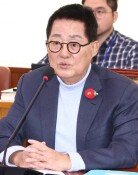Japanese Editorials Show Conflicting Views On Dokdo
Japanese Editorials Show Conflicting Views On Dokdo
Posted March. 17, 2005 22:52,
On March 17, editorials in Japanese newspapers reported that the Shimane prefectural assembly decided to draft an ordinance designating February 22 as Takeshima (the Japanese name for Dokdo, the controversial islets in the East Sea) Day. Their overall tone contrasted with one another. Some emphasized the importance of the South Korea-Japan friendship, while others criticized Koreas response.
The Asahi newspaper printed an editorial in letter format, titled, Dear ROK nationals. It read, It is an unfortunate incident, especially after the two countries co-sponsored the 2002 World Cup games and after there has been a surge of personnel and cultural exchanges. It advised, People of both countries need to calm down.
It went on to say, In the past, the only effective means to resolve territorial issues was to wage war, but that is not the right choice for both countries now. It emphasized, It is the Republic of Korea that has the de jure claim on the islets. Even if the ordinance is approved, Japans self-defense forces are not going to take them back. It added, Some day in the future, the islets could be a symbol of friendship beyond territorial disputes, suggesting, It is desirable to use this opportunity for cooperation.
The Mainichi newspaper reported, Both countries have pursued their efforts for amicable cooperation, leaving the issue of claim on Dokdo unresolved, adding, As local bodies do not have any diplomatic rights, approval of the ordinance will cause no change to the overall structure of the issue as long as both governments are willing to focus on friendship. Along with this, it said, Harming the 40-year-old friendship since the normalization of relations will hurt people of both countries, asking for a calmer response.
The Nihon Keizai Shimbun said, We should not let the long-time friendship of between us and South Korea turn sour, adding, In Korea, some are suspicious that the legislation passed by Shimane Prefecture might be based on the Japanese governments intention. Under these circumstances, both governments need to be frank with each other, and recover their trusting relationship.
The Tokyo Newspaper urged both governments to practice diplomatic wisdom as they did in 1999 when they signed a fisheries agreement designating the sea surrounding Dokdo as a temporary zone for fishing, putting the issue of territoriality onto the back burner.
On the other hand, right-wing publications like the Yomiuri Newspaper and the Sankei Newspaper dismissed Koreas protests as unreasonable, saying the approval of the draft is natural. The Yomiuri Newspaper said, Takeshima belongs to Japan historically and according to international law. The Shimane prefectural assemblys request for the government to establish a task force on the issue of Takeshima and to make schools teach this subject is natural. Sankei Newspaper said in an editorial titled, Why didnt Korea agree to bring the case to the court? that when Japan suggested Korea should bring the case to the International Court of Justice in 1954, Korea said no, adding, If Korea is that confident, they should say yes this time.
Won-Jae Park parkwj@donga.com







